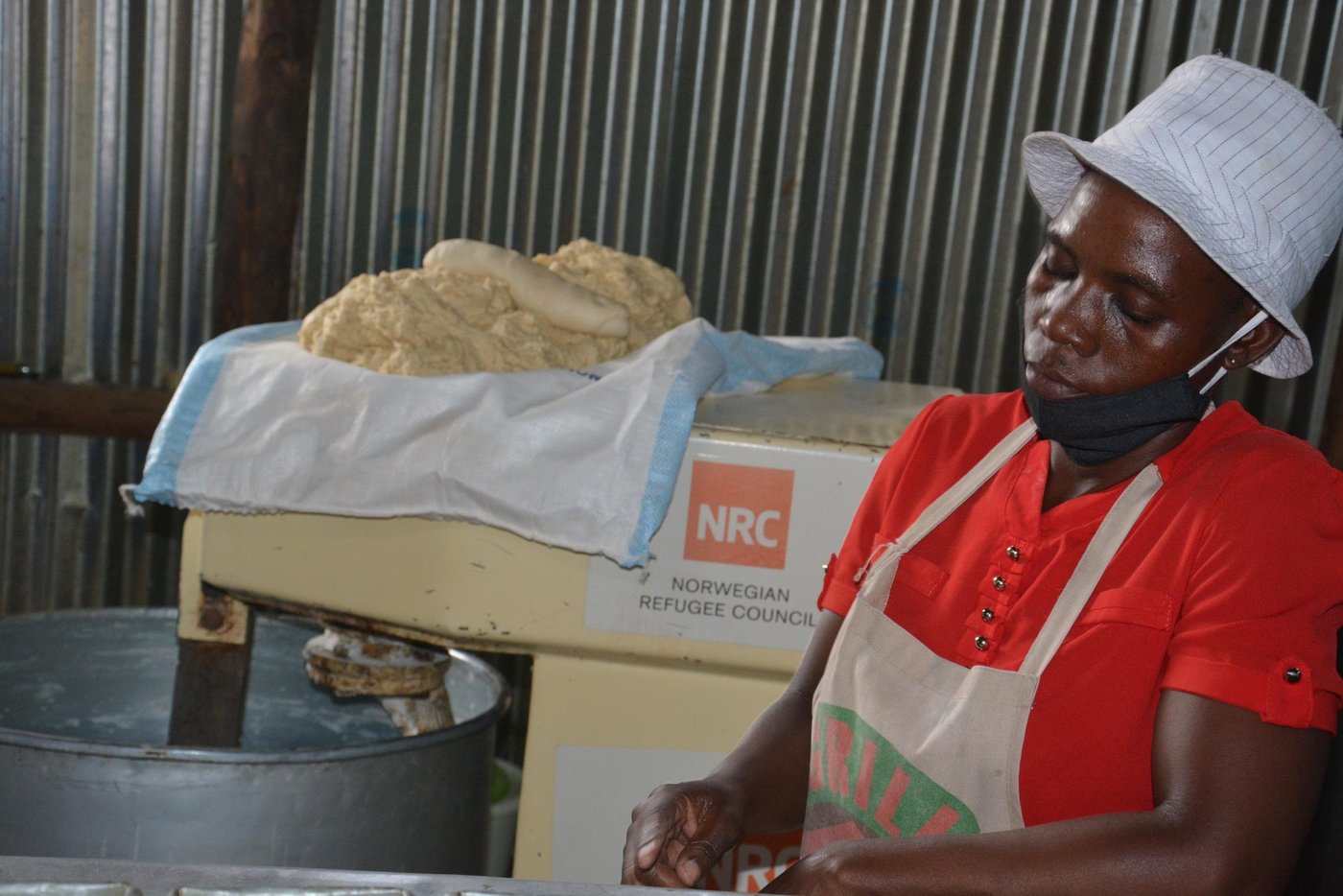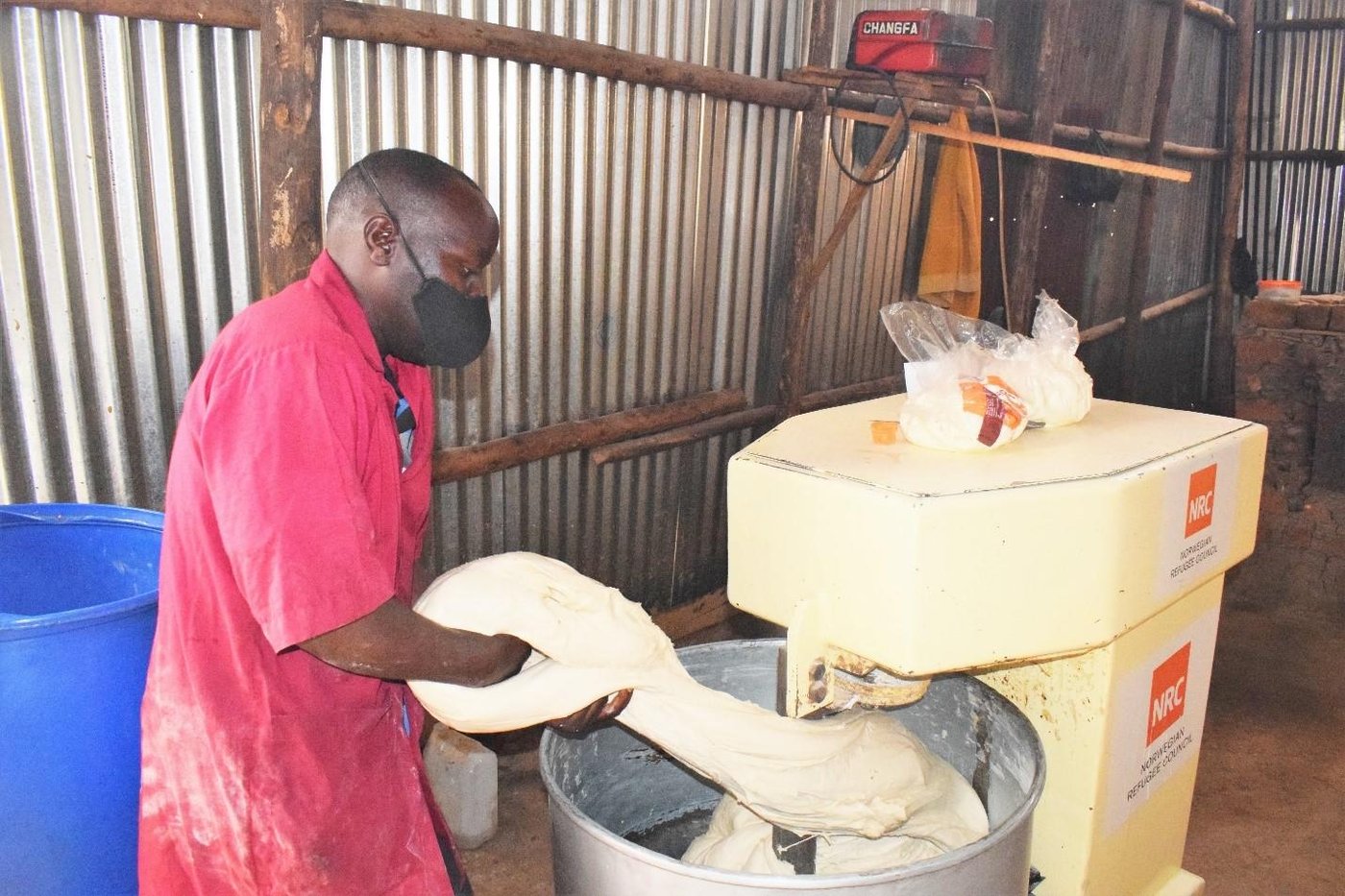He got a job as a semi-skilled labourer at a bakery in the suburbs of Kampala. Then, he and his friends managed to start their own baking business by pooling their resources and renting premises and equipment.
“My friends and I previously worked in a baking firm where we gained rich experience, and we decided to launch our own business,” says Christopher. “This idea led to the birth of our cooperative, which we christened ‘Bakers’ Bakery’. Our goal was that the bakery would become famous for producing unique products.”
The cooperative was based in Nateete, a cosmopolitan area west of Kampala City that is home to a significant number of refugees and poor urban communities.
Making ends meet
Relying solely on the ten members’ modest savings, the cooperative bought ingredients to make a wide range of products to sell to local communities and businesses. They planned to use the income to pay back the owner of the premises and equipment, and then share the remaining profit amongst the members.
The business got off to a great start! Christopher and his partners were producing hundreds of loaves of bread and packs of buns per day, and the customer network grew exponentially.
But hardly had the business picked up to meet demand, when the Covid-19 disaster struck.
When the pandemic was confirmed, the Government of Uganda declared an economic lockdown. The cooperative’s capital dwindled. Demand for products diminished along with the community’s purchasing power. The ban on private vehicles, which the cooperative had hired for distribution, aggravated the situation.
Ambitious targets
Prior to the lockdown, the cooperative had been dreaming of acquiring their own premises, equipment and delivery vans.
“The pandemic hit us hard and we were choking on debts,” says Christopher. “The business was on the verge of total collapse when we thought of approaching the Norwegian Refugee Council (NRC). We had heard that they supported refugee hosting communities in Uganda with cash grants to use for income generating activities.”
Christopher assembled his cooperative’s legal documents and visited the local NRC office together with some other members. Here, they presented their proposal for a business grant.

Success!
NRC’s urban response team carried out an assessment of the Baker’s Bakery proposal for the revival of its small-scale bakery. The proposal outlined several priorities including operational premises, an oven, a power generator, a heavy-duty dough mixer, storage facilities and baking tins.
The proposal was success. In addition to receiving the business grant, the group also received enough money to construct a makeshift warehouse and take part in financial literacy training.
Bakers’ Bakery has now increased the amount it produces every day. The products are sold to supermarkets and small-scale enterprises in the local area. The demand is high due to the unique spices and ingredients used.
The group has recently grown to 14 members, and it is now offering baking training to refugees and other interested members of the community.
“Our dream now is to acquire our own land, raise the oven to regulate the baking temperatures, purchase our own distribution vans and increase our production capacity,” Christopher concludes. “We are grateful to NRC for having resurrected our shattered dreams.”
In Uganda, there are many similar groups and individuals that are in need of assistance to cope with the adverse effects of Covid-19 and drastically declining funding from humanitarian agencies.
Uganda hosts 1,470,000 refugees and asylum seekers, making it the largest refugee-hosting country in Africa, and the third largest in the world.


